Politics on TV / Madrid
Talking about our generation: The future
Once-apathetic Spain is watching long-form TV debate shows. Is this how to re-engage us in government machinations?
We get the politicians we deserve. Those who were once untouchable grandees seasonally deigning to sermonise on the radiowaves have become public-relations professionals pinballing from rolling-news studio to daytime TV sofa and back again; all boxy skirt suits and sad ties doing the rounds of the news studios. Have we lost the art of the big political interview on the small screen? One broadcaster in Spain begs to differ, while elsewhere in this feature our Washington correspondent lists his greatest political TV hits. Sweaty top lips need not apply.
Something is changing in Spain. After years of tolerating politicians without answers – or even a narrative – a home audience is choosing to vote with the remote, tuning in to politically charged debate shows known as tertulias. Meaning “gatherings”, the discussion format has a history that stretches back centuries and the post-modern twist is fascinating Spaniards in their millions.
La Sexta Noche, a primetime current-affairs programme broadcast every Saturday night on the left-leaning, privately owned La Sexta network, has been riding the wave of discontent. Since the show launched in January 2013, ratings have quadrupled to more than two million. Gone are the days of Saturday-night programming crammed with vacuous celebrity talk shows and B-grade blockbusters. The country suddenly has an appetite for hard-hitting political drama of the non-fiction variety.
Rival networks are scrambling to revise their schedules; one even poached the show’s former director to launch its own version in the same timeslot. In response, La Sexta Noche has been allotted an extra 45 minutes and takes televised debate to dizzying heights with a cast of eight young media-savvy politicians and commentators pitted against one another to discuss recent events.
Adversarial, occasionally edifying and painfully live, the format is giving fresh air to a new batch of politicians who aren’t afraid to go off script. The Spanish may just have cracked the formula to turn stilted politicians into real, thinking human beings.
If recent opinion polls are to be believed, the tertulianos brave enough to step into the ring are already changing the political landscape. Spanish elections will take place in 2015 and it doesn’t bode well for the longstanding bipartisan duopoly.
“The same Conservative party that once accused us of being the mouthpiece of smaller parties is now clued in to the fact that they need to have a presence here,” says the show’s director Juan Ramón Gonzalo. The government’s absence (and its aversion to press conferences and live TV interviews in general) has given smaller parties plenty of oxygen. When new grassroots political party Podemos won 1.2 million votes in EU elections the government changed tack. “Now government MPs are calling us,” says Carolina Quesada, who books the guests.
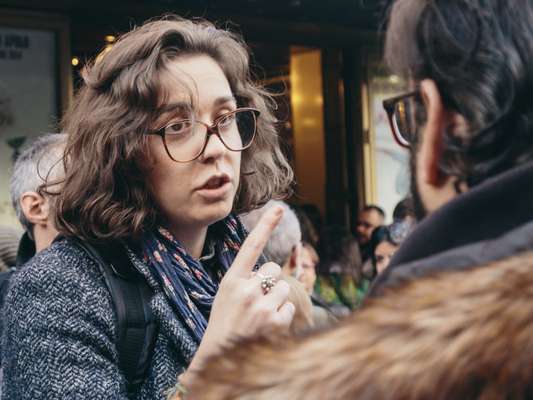
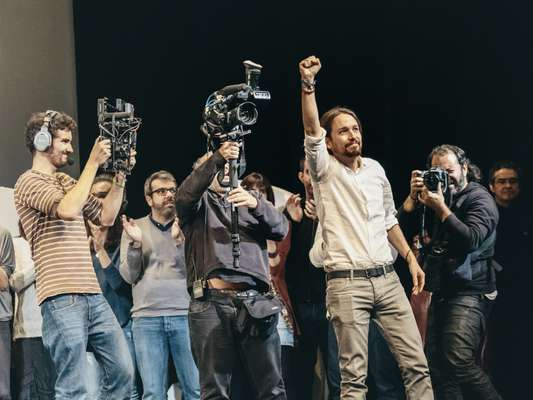

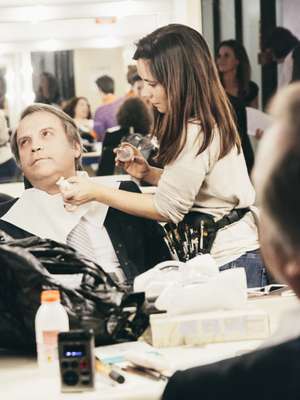
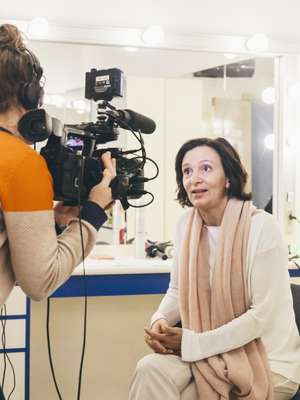
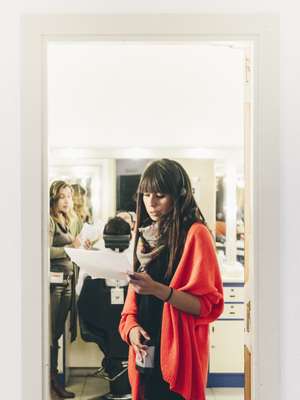
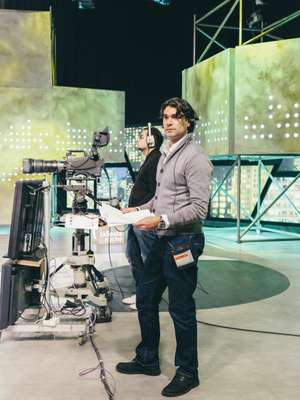
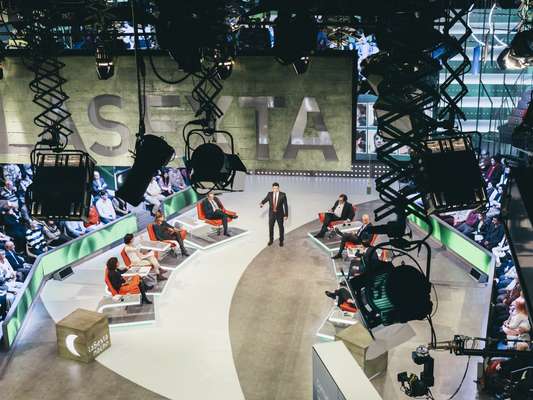
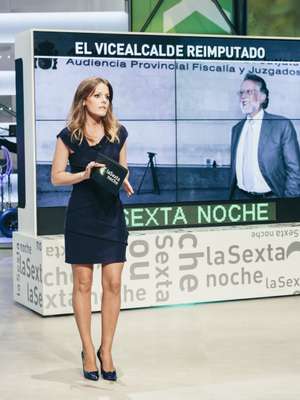
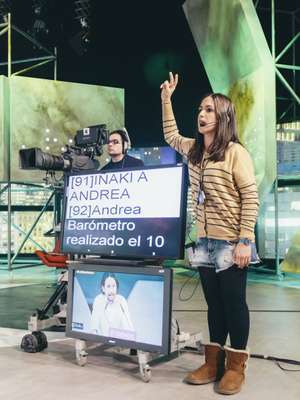

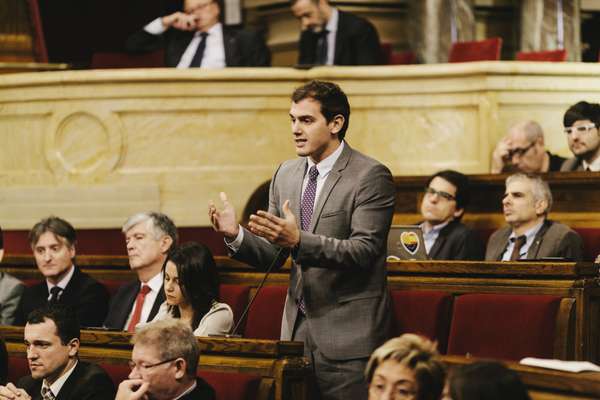
La Sexta Noche’s young producer Javier Torrijos believes the show has evolved to reflect the mood on the street. “We used to have a light-entertainment aspect to the show,” he says. “Now, instead of having a celebrity chef race a miniature motorbike around the set, stunts have been replaced with raw political debate. Our viewers are demanding it.” It is a promising development in a country that has long criticised itself for being uninterested in politics. Newsrooms around the world pay heed: don’t underestimate your audience.
It is 20.00 and scripts are jetting from the printer, facts are being frantically crosschecked and coffee cups refilled. With 90 minutes until the show goes live, the production office of around 20 staff convenes a final meeting to go through the run sheet. Apart from the eight tertulianos going head to head tonight, special guests include the crusading judge Baltasar Garzón, the repentant deputy mayor of Valencia (who’s on damage-control duty after famously blowing his top at a recent press conference) and a journalist who uncovered a recent travel-expenses scandal implicating the regional premier of Extremadura.
In Spain, 2014 contained more drama than your average Latin American telenovela. Recent scandals have brought the total number of politicians under official investigation for corruption to nearly 400. A high-ranking politician was involved in a police car chase over a disputed parking ticket. A former political heavyweight has been locked up in the very prison he inaugurated. The scripts practically write themselves.
“You couldn’t think up plots this good in Hollywood,” says show host Iñaki López. Charged with the task of reigning in the unruly guests, he expects them to adhere to a strict code of conduct. “No insults, no disrespect and a focus on a serious, credible debate is the goal. Making this work is the hard part,” he adds with a smile. His sense of humour helps moderate the tension but sometimes he literally needs to stand between raging guests, threaten to cut off their microphones or – very rarely – have them removed from the set.
At 21.30, the 250-strong studio audience is in place, the eight tertulianos are settling into their seats on a set that looks like the bridge of the Starship Enterprise and punchy music kicks off the live broadcast. It only takes a few minutes for the debate to get heated.
The tired dichotomy where two opposing voices do battle (a seasoned favourite of the cable news networks) can feel staged. Here though, with eight voices itching to be heard and plenty of infuriating headlines, there is no need to manufacture dissent: conflict is inevitable.
Many of the attacks are directed at Carolina Bescansa, tonight’s Podemos party representative. Bescansa’s soothing tone runs counter to the aggression being directed her way. On this occasion it is coming from two conservative journalists who have each mastered their role as on-screen provocateurs. “From the very beginning we knew we had to be here but instead of yelling and screaming we’ve been explaining our alternative vision,” says Bescansa. The meteoric rise of Podemos is attributed to leader Pablo Iglesia’s regular appearances on this show. Under the glaring lights his finely honed “enough is enough” message chastising la casta (the country’s political elite) has echoed around the country.
There is a long road to the ballot box but the two major political parties are haemorrhaging votes and Podemos is painting itself as the broom ready to sweep the system clean. “Don’t worry, their days are numbered!” says Bescansa to an audience member who implores her to keep up the pressure on the government.
Irene Lozano from the smaller, social-liberal party UPyD (Union, Progress and Democracy) is under no illusions about the power of television: “Appearing on TV makes you more popular,” she says during an advert break. “Spain is suffering a political and institutional crisis as well as a financial crisis. People want alternatives and, as a smaller party with limited resources, television multiplies our message.”
Catalonian politician Albert Rivera believes there is a silver lining to the crisis: “Citizens have become more politically aware and are seeking answers.” The 35-year-old leader of the relatively new Ciudadanos (citizens) party is a regular tertuliano. “This longer format is more dynamic than stock-standard television interviews,” he tells the forceast. “More topics are raised, and we are expected to share our opinion on a variety of matters. You can show your personality.”
Smaller parties often battle for airtime and in many countries are denied a podium during pre-election TV debates. The Spanish tertulia format gives everyone an equal seat at the table.
Is the result more sensational than any parliamentary debate? Definitely. But it also allows new political forces with little or no presence in the halls of power to make their case to the voting public. It flies in the face of the entrenched bipartisanship that has fed voter apathy and made it easier to tarnish politicians with the same brush.
An economics professor, socialist MP and tertulia veteran of 15 years, Antonio Miguel Carmona believes that the trick is not just to be seen and heard: it is also about listening to voters. “Many politicians – particularly now – are too focused on talking about themselves or their adversary’s problems,” he says. “What we need to be talking about is unemployment: the real issues facing our constituents.” Carmona is here building his profile ahead of May’s mayoral elections in Madrid. Would victory spell an end to his time on this televised battlefield? “I’d still be here once in a while,” he says. This admission underlines the reality of governing: it can’t all be a performance. What the TV doesn’t show is the procedural, the tedious, the bland. But try telling this to the 24-hour news cycle with an addiction to spectacle and conflict.
Back in the green room it is 03.00, the guests have left the studio and the crew of La Sexta Noche is sitting down for a post-mortem. As they sip red wine they are told that tonight’s ratings were solid but the upward trend of the past few weeks has plateaued. The competition is nipping at their heels. Time to rejig a winning formula? That depends on whether people are watching. What’s obvious is that TV producers need to start finding ways to go beyond the six-second soundbite and counter the scripted talking points that are reducing public discourse to a well-rehearsed cue card.
For the political establishment the lesson is clear: take a step down from your pedestal, lose the talking points and tell us what you really think. Stick to the scripted formula of old and voters won’t just change the channel – they’ll change the parliament.


